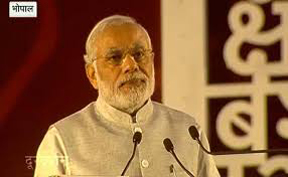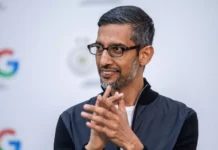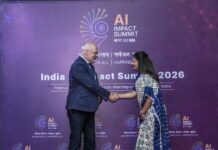 BHOPAL: Stating that English, Chinese and Hindi will rule the digital world in the coming days, Prime Minister Narendra Modi today noted that the language market was huge and companies can cash in on it by developing apps at the earliest.
BHOPAL: Stating that English, Chinese and Hindi will rule the digital world in the coming days, Prime Minister Narendra Modi today noted that the language market was huge and companies can cash in on it by developing apps at the earliest.
Inaugurating the 10th Vishwa Hindi Sammelan (World Hindi Conference) at Lal Parade ground here, Modi also called for steps to preserve endangered languages and pointed to concerns voiced by scholars that 90 per cent of the 6,000 languages world-over face the risk of becoming relics from the past.
“In the days to come, three languages – English, Chinese and Hindi –
will be influential in the digital world,” he said, adding that the language market is huge and companies can tap into it by creating apps.
Highlighting the importance of Hindi and the need for enriching it, Modi said, “If we forget Hindi, it will be a loss to the country.”
“Though my mother tongue is Gujarati, I think at times what would have happened to me had I not known Hindi. I know fairly well the strength of knowing any language,” he said, adding at the same time that the focus should not be on only promoting Hindi but other endangered languages as well.
“If we don’t take note of the warning of the language scholars, these languages will be relegated to history. If there is no language, how can literature survive?
“If we don’t conserve and protect our languages, then they will die… become extinct and lead to a situation akin to where we have to watch a film to know what the dinosaur looked like,” he said.
The prime minister also stressed that language should remain inclusive and not exclusive.
“It would be good if workshops of various regional languages spoken across the country can be organized to include good words of those languages in Hindi.
“It is the responsibility of every generation to protect, if possible, conserve its heritage and introduce it to the next generations. Whenever something written/engraved is found on a stone, the archaeological department spends years on research to find out what language it is,” he said.
Modi also recalled his days as a tea seller in Gujarat and said he had learnt Hindi while selling tea to traders of Uttar Pradesh who would travel to Gujarat to buy buffaloes.
“We must continuously strive to bring prosperity to our language,” the prime minister said.
“I work in public life… if I ever go to Tamil Nadu and say ‘Vanakkam’, I see an electrifying effect in the entire state,” Modi said as he sought to highlight the significance of knowing different languages.
He also spoke about how he has witnessed the growing popularity of Hindi in countries like Mauritius, Mongolia, China and Russia, and acknowledged the role of Hindi movies in promoting the language overseas.
He also pointed to how leaders such as the US President Barack Obama and Russian President Vladimir Putin were uttering ‘sabka saath, sabka vikas’ in Hindi and said that even Isreali Prime Minister Benjamin Netanyahu had conveyed his greetings in Hindi for a festival.
Representatives from 40 countries are in Bhopal to attend the conference, which Modi described as being the ‘Maha Kumbh’ of Hindi.
Earlier, External Affairs Minister Sushma Swaraj said that the 10th Vishwa Hindi Sammelan was in a different league from other conferences.
The emphasis this time is more on the possibilities of propagating Hindi in various fields rather than on just literary aspects of the language, she added.
The conference was also addressed by Madhya Pradesh Chief Minister Shivraj Singh Chouhan.
A postage stamp to commemorate the conference was also released by the prime minister in the presence of Union Minister for Communications and IT, Ravi Shankar Prasad.
Mauritius Education Minister Leela Devi along with Union Ministers Harsh Vardhan, General (retd) VK Singh and Kiren Rijiju were present on the occasion, as were Jharkhand Chief Minister Raghuvar Das, Goa Governor Mridula Sinha, West Bengal Governor Kesari Nath Tripathi and Madhya Pradesh Governor Ram Naresh Yadav.–PTI






